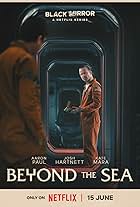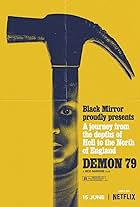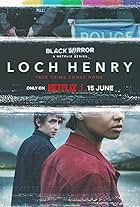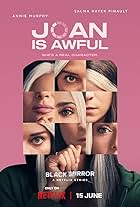
mensch-2
Iscritto in data ago 1999
Ti diamo il benvenuto nel nuovo profilo
Stiamo ancora lavorando all'aggiornamento di alcune funzionalità del profilo. Per visualizzare I loghi, le suddivisioni delle valutazioni e i sondaggi per questo profilo, vai a versione precedente.
Valutazioni3540
Valutazione di mensch-2
Recensioni5
Valutazione di mensch-2
Gangsters, asylum seekers and farmers come together in the Dutch countryside in this distinctive and compelling film by Dutch graphic novelist Guido van Driel.
Here we have what seem to be two stories. In one, Ronnie, played with chilling accuracy by the somewhat grotesque Yorick van Wagenigen (The Girl with the Dragon Tattoo) is a ruthless gangster until an incident changes forces him to question his existence. In the other, asylum seeker Eduardo, in a sensitive turn by the talented Goua Robert Grovogui, struggles to deal with Dutch life and the trauma of whatever made him flee his country of birth.
The two stories are told in an elliptical structure that draws us into very separate lives with a series of fascinating, colourful and beautifully acted and rendered sequences.
Based on van Driel's 2003 graphic novel Om Mekaar in Dokkum, this gangster drama hybrid is a sort of existential tough-guy movie van Driel describes as a mix of 'Tarantino and Tarkovsky'. In a sense, this description doesn't do justice to the film, for while it features plenty of sardonic wit and amusing anecdotes, its real triumph is its simple humanism. It's ultimately a serious tale done straight, but with the aesthetics of the graphic novel.
If at times it feels a little arrhythmic (you're often left wanting less from a scene or feeling like you could have had more), it's perhaps partly because van Driel is first and foremost a graphic novelist, and graphic novels are guilty pleasures for individual readers, not audiences used to three acts and rising and falling action.
This needn't be to the film's detriment however, because van Driel has set out to make a film that's as faithful to its source material as possible. It's a risky decision but one that pays off thanks to fine acting, technical brilliance, and that most rare of birds: originality.
This film may not change the world, but it may just change Dutch cinema.
Here we have what seem to be two stories. In one, Ronnie, played with chilling accuracy by the somewhat grotesque Yorick van Wagenigen (The Girl with the Dragon Tattoo) is a ruthless gangster until an incident changes forces him to question his existence. In the other, asylum seeker Eduardo, in a sensitive turn by the talented Goua Robert Grovogui, struggles to deal with Dutch life and the trauma of whatever made him flee his country of birth.
The two stories are told in an elliptical structure that draws us into very separate lives with a series of fascinating, colourful and beautifully acted and rendered sequences.
Based on van Driel's 2003 graphic novel Om Mekaar in Dokkum, this gangster drama hybrid is a sort of existential tough-guy movie van Driel describes as a mix of 'Tarantino and Tarkovsky'. In a sense, this description doesn't do justice to the film, for while it features plenty of sardonic wit and amusing anecdotes, its real triumph is its simple humanism. It's ultimately a serious tale done straight, but with the aesthetics of the graphic novel.
If at times it feels a little arrhythmic (you're often left wanting less from a scene or feeling like you could have had more), it's perhaps partly because van Driel is first and foremost a graphic novelist, and graphic novels are guilty pleasures for individual readers, not audiences used to three acts and rising and falling action.
This needn't be to the film's detriment however, because van Driel has set out to make a film that's as faithful to its source material as possible. It's a risky decision but one that pays off thanks to fine acting, technical brilliance, and that most rare of birds: originality.
This film may not change the world, but it may just change Dutch cinema.
Lotte Verbeek and Stephen Rea, two highly accomplished actors, take on this thoughtful two- hander from Polish-Dutch débutant Urszula Antoniak about loneliness and the difficulty of human connection.
Verbeek plays an unnamed Dutch woman who finds herself in Ireland after the end of her marriage and, having opted for an itinerant life free from life's trappings, ends up working on the isolated estate of recent widower Martin (Rea). They strike up an agreement: she will work for food on condition that neither exchanges any personal information about the other.
The deal works for a while, but inevitably resistances crumble and the pair form a strong and, for the audience, steadily intriguing bond. Their personal as well as cultural differences clash and then mesh, leading to a co-dependency allegorical to most 'normal' relationships.
Antoniak clearly has a good eye, and her performers give their all, but as the film's central premise – a Dutch girl wandering into the Galway countryside – is never explained (beyond the financial needs of a Dutch-Irish co-production), the result is perplexing rather than engaging. While Antoniak's restraint is admirable, from a dramaturgical perspective we are left to scratch our heads while indulging in shots of beautiful countryside.
The result is impressive but curiously forgettable, and feels like the idea for a short stretched out into a feature-length film (albeit one that cleaned up at the Locarno Film Festival). We are certainly pulled into the head of the main character, but as her puzzlement and anomie for the world increases so does ours for the film, so any chance of redemption (or explanation) is not just missing, it's redundant.
Antoniak is one to watch, but whether one could say the same for the film is not so much a question of quality but one of taste.
Verbeek plays an unnamed Dutch woman who finds herself in Ireland after the end of her marriage and, having opted for an itinerant life free from life's trappings, ends up working on the isolated estate of recent widower Martin (Rea). They strike up an agreement: she will work for food on condition that neither exchanges any personal information about the other.
The deal works for a while, but inevitably resistances crumble and the pair form a strong and, for the audience, steadily intriguing bond. Their personal as well as cultural differences clash and then mesh, leading to a co-dependency allegorical to most 'normal' relationships.
Antoniak clearly has a good eye, and her performers give their all, but as the film's central premise – a Dutch girl wandering into the Galway countryside – is never explained (beyond the financial needs of a Dutch-Irish co-production), the result is perplexing rather than engaging. While Antoniak's restraint is admirable, from a dramaturgical perspective we are left to scratch our heads while indulging in shots of beautiful countryside.
The result is impressive but curiously forgettable, and feels like the idea for a short stretched out into a feature-length film (albeit one that cleaned up at the Locarno Film Festival). We are certainly pulled into the head of the main character, but as her puzzlement and anomie for the world increases so does ours for the film, so any chance of redemption (or explanation) is not just missing, it's redundant.
Antoniak is one to watch, but whether one could say the same for the film is not so much a question of quality but one of taste.
Few film auteurs can match the consistency of Michael Haneke, and once again the Austrian filmmaker has come up trumps with an exquisite and brooding mediation on repression, tradition and the sins of the father.
Shot in stunning black and white, the film chronicles a series of mysterious events in a town leading up to the outbreak of WWI. The pace is slow and thoughtful, and the film is reference to August Sander while being a respectful throwback to the German expressionists whose work would come out of the horrors the film's narrative seems to foreshadow.
The hallmarks of Haneke's body of work are all there – elegiac tone, clinical editing, wincingly frank dialogue – but in many ways The White Ribbon stands alone in the canon. It is a challenging work that will polarise audiences but represents a breathtaking new wave not just in the director's career but in European cinema.
Some might say the film's inherent flaw is that there is no-one to root for, but this is perhaps its key strength. It's certainly plausible that this is Haneke's intention: he wants to position us as mute outsiders to a slowly creeping menace, unable to have a say in the invisible horrors that await us. The result is a deadening and thoroughly rewarding experience - a combination few filmmakers could hope to achieve.
Shot in stunning black and white, the film chronicles a series of mysterious events in a town leading up to the outbreak of WWI. The pace is slow and thoughtful, and the film is reference to August Sander while being a respectful throwback to the German expressionists whose work would come out of the horrors the film's narrative seems to foreshadow.
The hallmarks of Haneke's body of work are all there – elegiac tone, clinical editing, wincingly frank dialogue – but in many ways The White Ribbon stands alone in the canon. It is a challenging work that will polarise audiences but represents a breathtaking new wave not just in the director's career but in European cinema.
Some might say the film's inherent flaw is that there is no-one to root for, but this is perhaps its key strength. It's certainly plausible that this is Haneke's intention: he wants to position us as mute outsiders to a slowly creeping menace, unable to have a say in the invisible horrors that await us. The result is a deadening and thoroughly rewarding experience - a combination few filmmakers could hope to achieve.

























